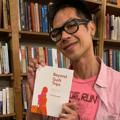KnitAFett reviewed The Underground Railroad by Colson Whitehead
The train threw me off a bit.
4 stars
This is one of those times that I actually appreciated the time jumps. It was satisfying to get to see what happened to Cora's mom and what was going through Caesar's mind when he picked Cora. Gruesome realities of slavery are on display throughout, so just be sure that you're up for the journey when you dive into this.
I did not feel like I had the ending figured out at all. After so much bad crazy stuff happening along the journey, I could not say that I was certain if Cora was going to survive in the end or not. Good execution on Whitehead's part through this book.
I would recommend this one for sure, but just be prepared with the Underground Railroad being a literal train under the ground. That threw me off quite a bit because the rest of the book is so heavily based …
This is one of those times that I actually appreciated the time jumps. It was satisfying to get to see what happened to Cora's mom and what was going through Caesar's mind when he picked Cora. Gruesome realities of slavery are on display throughout, so just be sure that you're up for the journey when you dive into this.
I did not feel like I had the ending figured out at all. After so much bad crazy stuff happening along the journey, I could not say that I was certain if Cora was going to survive in the end or not. Good execution on Whitehead's part through this book.
I would recommend this one for sure, but just be prepared with the Underground Railroad being a literal train under the ground. That threw me off quite a bit because the rest of the book is so heavily based in reality. So I think as long as you're prepared for that, you'll find this to be a good one to read.












